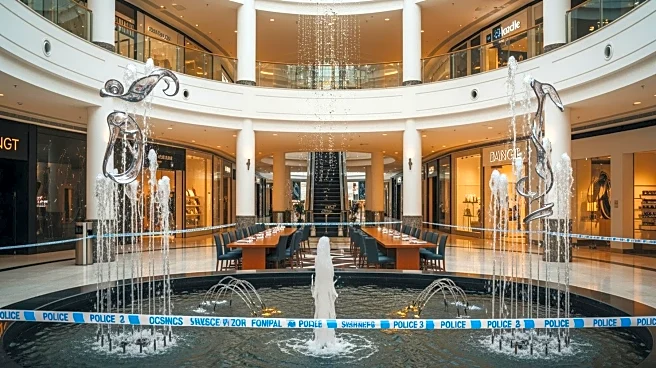What's Happening?
Luxury brands in China are shifting their strategies to enhance consumer engagement and boost spending recovery. Companies like LVMH and Hermès are focusing on creating personalized and immersive experiences for high-earning consumers. This shift comes
as brands aim to increase market share rather than just growth, following a decline in luxury spending during the pandemic. The Nanjing Deji Plaza, a top-performing mall, has become a focal point for these brands, offering exclusive shopping experiences. Despite signs of spending growth, the luxury market in China is not expected to return to its pre-pandemic peak levels.
Why It's Important?
The strategic shift by luxury brands in China is significant as it highlights a broader trend in the luxury market towards personalized consumer experiences. This approach could influence global luxury markets, as brands seek to recover from the economic impacts of the pandemic. The focus on high-earners and market share could lead to increased competition among luxury brands, potentially driving innovation in consumer engagement strategies. The success of these strategies in China could serve as a model for other markets, impacting global luxury brand operations and marketing approaches.
What's Next?
Luxury brands are likely to continue investing in personalized and immersive experiences to attract high-earning consumers. As the Chinese economy stabilizes, these strategies may help brands regain market share and drive sales growth. The ongoing economic and geopolitical uncertainties, however, could pose challenges to sustained recovery. Brands may need to adapt their strategies to changing consumer preferences and economic conditions to maintain their competitive edge.
Beyond the Headlines
The emphasis on personalized experiences in the luxury market raises questions about consumer privacy and data usage. As brands collect more data to tailor experiences, they must navigate privacy concerns and regulatory requirements. Additionally, the focus on high-earners may widen the gap between luxury and mass-market consumers, potentially impacting brand perceptions and consumer loyalty.















